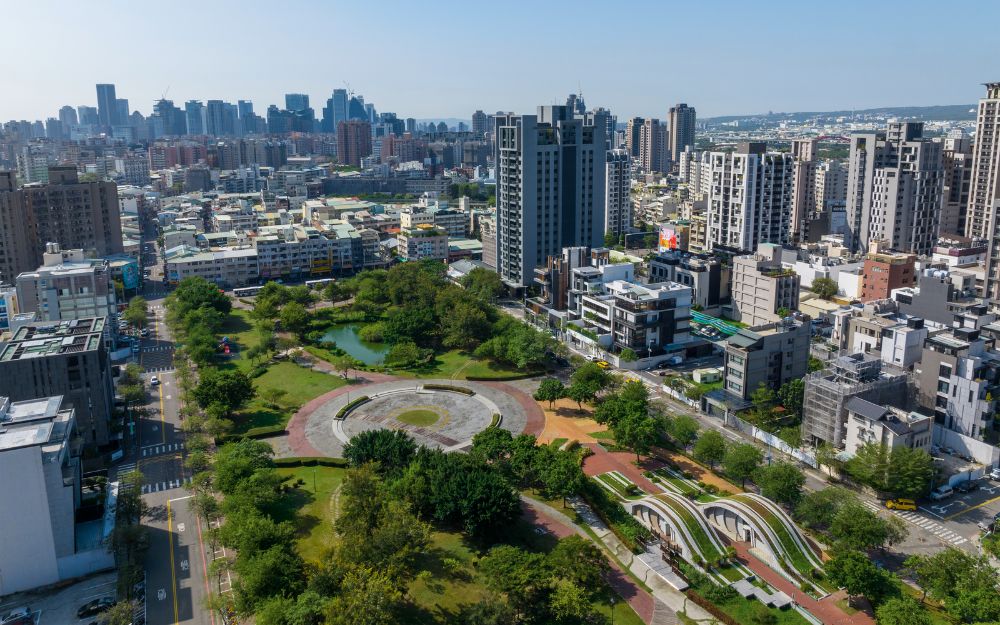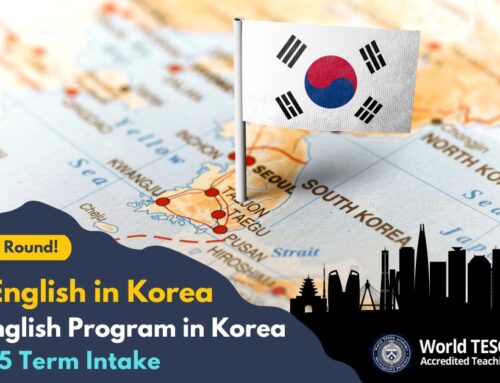
Teaching English in Taiwan: Exploring the heart of Asia
Hi, everyone! I’m Mel, an ESL teacher in Taiwan for over five years. In this article, I will share my story of how I started teaching English in Taiwan, the heart of Asia, as well as my best tips on how you can do the same.
Taiwan is a top world destination for professional English teachers, and you should definitely consider it if you are seeking an unforgettable teaching experience abroad. Foreign teachers who are looking to launch a teaching career in Taiwan, are typically recruited from abroad by a school or recruiting agency. However, what many aspiring teachers don’t know is that there are also other ways to get started with English teaching in Taiwan, which is exactly what I did.
My path to my current English teaching job was a bit unconventional compared to the standard way, as I chose to teach in Taiwan based on convenience. My story started back in 2013 in my home country Saint Lucia, an island in the Caribbean, where I was granted a university scholarship to study in Taiwan.

Starting a new chapter
While studying for my master’s in Taiwan, I also taught English part-time for several chain cram schools throughout my city—Taichung, a major city located in Central Taiwan. This was done on my student visa. After graduating, I wanted something more long-term which meant that I had to shift my student visa to a teaching visa.
Weeks before my student VISA expired, I applied for teaching job positions through Facebook groups dedicated to connecting job seekers to teaching jobs. After several interviews and demos, I eventually landed a job at a Grade K-5 cram school. However, by that time, my student VISA was on the verge of expiration. Luckily, I was able to obtain a working VISA from the school before the expiration date.
This meant I had to leave the country before the expiration and come back as a tourist. I did a VISA run, which involved flying to the Philippines for a week or so and coming back to Taiwan. This is where things got easy. With a work VISA, you simply have to show up at any local branch of the Taiwan Immigration Department and apply for a work ARC—a blue identity card the size of a credit card. It takes about two weeks to get the card finally
Life in Taiwan
After arrival, you realize quickly how safe and convenient Taiwan is despite the culture shock. For me, the major shock was food. I just couldn’t figure out that the horrible ammonia smell at the street market was stinky tofu. According to locals, the stinkier, the tastier! The food here is so different. But with time, you learn to appreciate the variety of options and find something you like. My personal favorites are beef noodle soup, steamed buns, dumplings, and fried rice.
Apart from that, the cost of living in Taiwan is fairly cheap. There are mom-and-pop restaurants everywhere, and you can purchase breakfast, lunch, or dinner for as low as 3–5 USD per meal. Also, there are 24-7 Family Mart and 711 stores at almost every street corner!
The low cost of living, reliable public transportation (even if it gets crowded sometimes), and general safety in any major city is something that you will appreciate. Housing also comes with a wide variety, and studio apartments can range between 163 and 390 USD per month.
Setting up bank accounts, getting a phone plan, or locating a new apartment might be challenging because of the language barrier. And also because most of these businesses don’t like the extra hassle of dealing with non-locals. So, buddy up with friendly locals or long-time expats and learn as much of the local language as possible.
Although small, Taiwan offers a lot landscape-wise. It’s an island with a mountainous interior and lovely coast-side beaches. To top it off, the cheap transportation and excellent road system means that these scenic areas are easily accessed.
Teaching in Taiwan
Teaching English in Taiwan or any non-English foreign country requires specific skills. This is why I recommend signing up for online ESL teaching courses, such as those offered by World TESOL Academy. In Taiwan, most teaching jobs are provided by cram schools. These are schools that offer English lessons after regular school hours. Their working hours are typically between 2 and 6–8 PM.
These special skills relate to capturing the attention of students who might be tired and bored after regular school, as well as teaching a second language, which is often perceived as challenging. So, a huge part of teaching English as a foreign language (TEFL) is teaching through play. You are expected to be a type of entertainer while teaching.
You have to be the fun teacher, which may be stressful for some teachers who don’t have that type of personality. But cram schools in Taiwan can be expensive, and employers expect that your students—and in turn the parents who pay—to like you! Signing up for TEFL certification can help teach you skills required to keep students entertained while making sure that they actually learn.
Besides this, the working schedule for most TEFL schools begins from 2:00 PM to 6:30-8:00 PM. You should typically expect to make about 1700–2000 USD per month. Your teaching contract also lasts for one year on average and can be renewed after each year. In most ESL classes, there is at least one Taiwanese teacher/aide to help (It’s three in my case). They’re often eager to help in managing classes that might be too large or helping with students who get too rowdy.
Tips on how to get started
From my personal experience, the VISA process is the most difficult hurdle in getting a teaching job in Taiwan.
You need four things to get a teaching working VISA:
- A passport from a country listed by Taiwan as a native English-speaking country
- At least an undergraduate degree
- A current police certificate from the country that issued your passport (i.e., at least six months old)
- A work permit from the school employing you
I also strongly recommend getting a TESOL/TEFL teaching certification to improve your chances in an ESL job market growing more crowded every day.
In my case, I was already in Taiwan at the time I got my work permit, which can only be sponsored by your employer. With it, you can apply for an alien residence certificate (ARC), which would allow you to stay in the country and enjoy many of the same benefits as Taiwanese citizens, such as opening a bank account and qualifying for national health insurance.
Looking to launch a teaching career in Taiwan?
To teach English in Taiwan, you’ll need to have an accredited and recognized 120-hour TESOL/TEFL certificate.
With World TESOL Academy’s accredited 120-hour TESOL/TEFL course you’ll develop the necessary skills and certification needed to launch your teaching career in Taiwan.
Or click here to get a free preview of the course.
.
To locate a job in Taiwan, you can take one of three routes:
- Relying on a recruiting agent or agency.
- Applying directly to the school.
- Networking.
If you plan on teaching in Taiwan, I recommend casting a wide net and utilizing a variety of resources such as online job boards, Facebook groups focusing on ESL jobs in Taiwan, LinkedIn job posts, networking with the local community of English teachers, etc. This will allow you to access a wide variety of teaching opportunities in Taiwan and receive recommendations on the best schools or recruiting agencies, as well as what to avoid.
Final thoughts
I think Taiwan is among the best options for teaching English abroad because of the cheap living cost, safety, and high wages. However, the TEFL job market is becoming more competitive, and teaching English to young ESL learners requires specific skills. So, I recommend taking TEFL courses to improve your chances of success.
English has become the global language of communication. Teaching it to young students in a foreign country makes you feel like you are helping them become savvy global citizens, which can be quite rewarding. Teaching in Taiwan has taught me how to learn, appreciate, and flourish in a vastly different culture.
I also highly recommend visiting the country first before applying, as attending interviews and demos in person would be ideal. You’ll get a chance to see for yourself what you’re stepping into instead of relying on recruiting agencies.
As for me, I plan to continue teaching ESL in Taiwan. But instead of remaining as a teacher of Grade K students, I will focus on teaching older elementary school students but in a private school or non-buxiban setting.
Good luck on your English teaching journey!

















Very interesting. I completed the course but I want to teach online to start.
It was a very good process learning to teach through your academy.